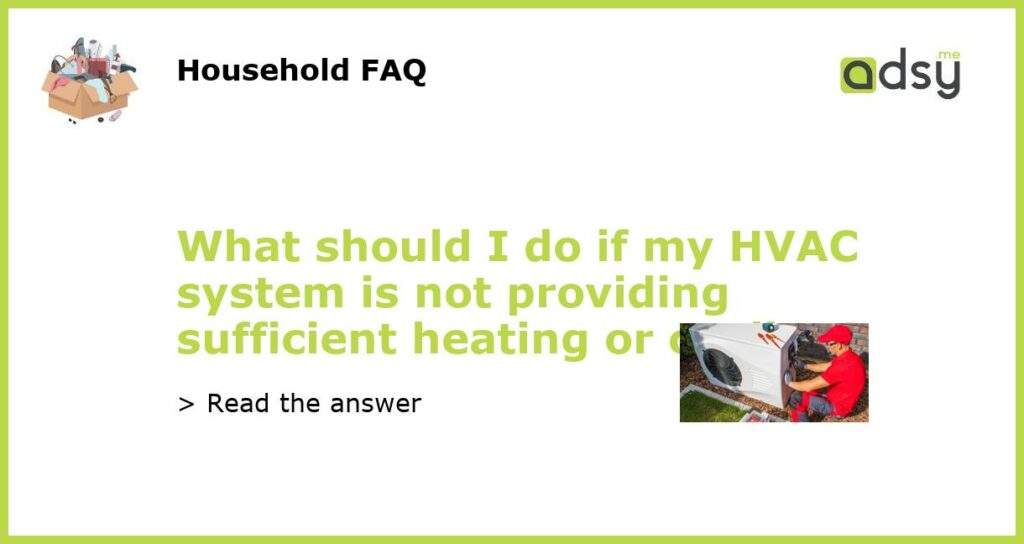Check the Thermostat Settings
If your HVAC system is not providing sufficient heating or cooling, the first thing you should do is check the thermostat settings. Make sure the thermostat is set to the desired temperature and the system is set to either “heat” or “cool” depending on your needs. It is also important to check the fan setting, as it should be set to “auto” for optimal comfort. If the settings are correct, move on to the next step.
Inspect the Air Filters
Clogged or dirty air filters can hamper the performance of your HVAC system. Over time, air filters collect dust, debris, and other particles, which can restrict airflow and reduce the system’s efficiency. Check your air filters and if they are dirty, clean or replace them accordingly. This simple maintenance task can often solve heating or cooling issues.
Clean the Outdoor Unit
If your system has an outdoor unit, it is crucial to keep it clean and free from any obstructions. Leaves, dirt, and debris can accumulate around the unit, blocking the airflow and causing the system to work harder to provide heating or cooling. Turn off the power to the unit, remove any debris or obstructions, and clean the area around it. Regular maintenance of the outdoor unit can significantly improve the efficiency and performance of your HVAC system.
Check for Leaks or Damaged Ductwork
Leaky or damaged ductwork can lead to air loss and reduced heating or cooling efficiency. Inspect the ductwork for any visible leaks or cracks. If you spot any issues, seal them with duct tape or contact a professional HVAC technician to repair or replace the damaged ductwork. Properly sealed and insulated ductwork can help your HVAC system deliver the desired temperature more effectively.
Schedule Professional HVAC Maintenance
If your HVAC system is still not providing sufficient heating or cooling after performing the above steps, it is recommended to schedule professional HVAC maintenance. An experienced HVAC technician will thoroughly inspect and diagnose your system, identifying any underlying issues. They can clean the internal components, lubricate moving parts, check for refrigerant leaks, and ensure your system is functioning optimally. Regular maintenance can prevent future problems and extend the lifespan of your HVAC system.

